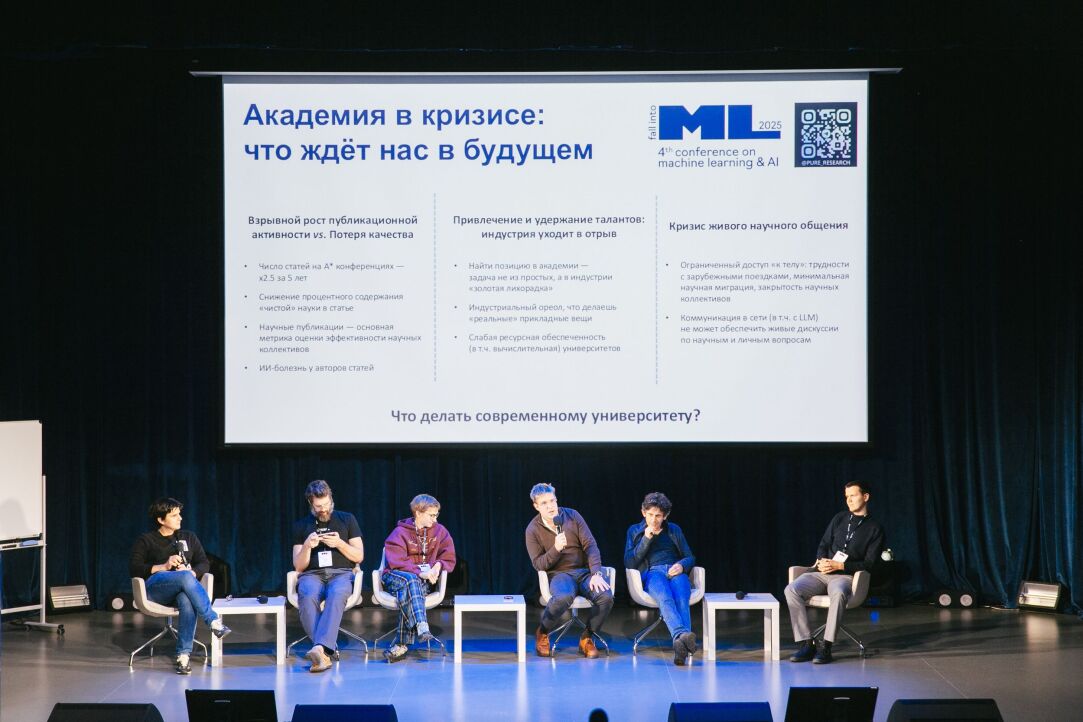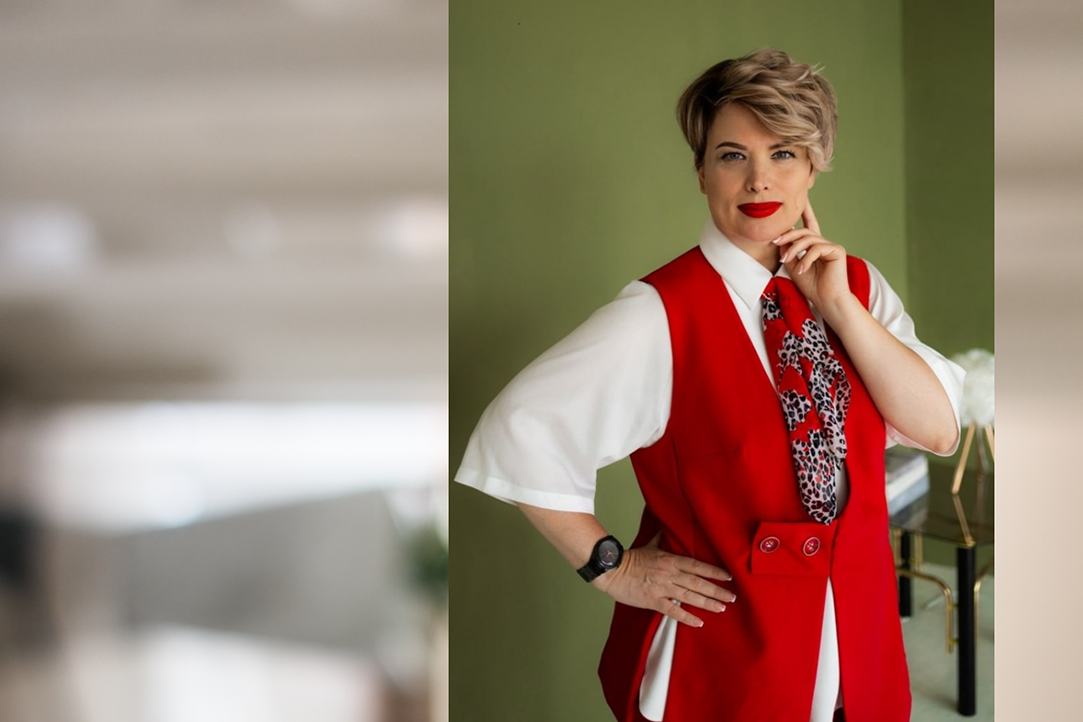
‘Our Task Is to Promote and Popularise Native Languages’
The Centre for the Study of Native Languages at Dagestan State University (DSU) is actively engaged in researching the many languages spoken by the peoples of Dagestan. The republic has 14 official state languages, many of which have their own dialects and varieties. Scholars from Dagestan plan to adopt corpus-based methods of linguistic research used at HSE University and intend to collaborate with HSE’s Linguistic Convergence Laboratory. The HSE News Service spoke with the centre’s Director, Prof. Marina Gasanova, who is currently undertaking a research placement at HSE University.

Quantity over Quality: How Publication Activity Leads to Crisis
Participants of the 4th Fall into ML conference at HSE University held a discussion titled ‘Academia in Crisis: What Does the Future Hold?’ In particular, they examined why the number of scientific publications continues to grow, what the quality of these papers is, what expectations should be placed on researchers, and what role artificial intelligence plays in preparing academic articles.

‘The Collection Is My Family’
In September, Pierre-Christian Brochet, publisher, collector of contemporary art, curator of the Contemporary Art track at the HSE Art and Design School, and curator of the HSE Museum Laboratory, turned 65. In an interview with the HSE News Service, he spoke about responsibility towards the future, Stendhal, Dumas, the Komi Biennale, and why his grandmother was right after all.

‘We Fought for Every Ball and Came Out Victorious’
On October 18–19, 2025, the first international Russian Tennis Federation Pickleball Cup took place in Moscow. The tournament brought together 117 athletes from six countries—China, Belarus, Turkey, Israel, Vietnam, and Russia—including two representatives of HSE University, who together won three medals.

‘The Goal Is to Create Something New for My Country’
Maria Andreeva became interested in satellite engineering in Year 6. Then, she was a prize-winner of the Top Class (Vysshiy Pilotazh) competition, gave lectures for school students, and took part in meetings with the President of Russia, Vladimir Putin. Two years ago, a satellite she helped develop was launched into space. This year, Maria entered HSE University to study on the Information Science and Computation Technology programme delivered by the HSE Tikhonov Moscow Institute of Electronics and Mathematics (MIEM). In an interview with the HSE News Service, the first-year student spoke about her passion for space and the opportunities she has found at the university.

'When You Transform the Environment around You, That Is Definitely a Success'
A year ago, Inna Andreyanova, Director of Corporate Development at the Foundation for the Development of ISTC 'Intelligent Electronics–Valdai' and graduate of the Master's Programme in Management in Higher Education at HSE University, took up the position of General Director of the Foundation for the Development of the UNITY PARK Innovative Scientific and Technological Centre in Surgut. In this interview, Inna Andreyanova talks about working on the development of a major federal project, her studies at HSE University, and the motivation she draws from a job that makes full use of her skills.

How Colour Affects Pricing: Why Art Collectors Pay More for Blue
Economists from HSE University, St Petersburg State University, and the University of Florida have found which colours in abstract paintings increase their market value. An analysis of thousands of canvases sold at auctions revealed that buyers place a higher value on blue and favour bright, saturated palettes, while showing less appreciation for traditional colour schemes. The article has been published in Information Systems Frontiers.

‘It’s Important to Me Not to Rest on My Laurels’
Uliana Kisataeva, a student at the HSE Graduate School of Business, was one of the winners of the UN Global Compact PRME 2025 Business Case Competition supported by the United Nations. As part of the competition, Uliana presented a digital platform called Green B2B Match, which can help businesses reduce their carbon footprint and contribute to the development of responsible consumption. In an interview with the HSE News Service, she spoke about her project, the competition, and her victory.

HSE University–St Petersburg to Create Joint Continuing Education Programmes with Indian Business School
A delegation from the Institute for Continuing Professional Education at HSE University–St Petersburg discussed new cooperation formats with the Indian Institute of Management Indore (India). The partnership opens up new opportunities for HSE University–St Petersburg to create interdisciplinary programmes with strong practical elements and immersion in the business cultures of the Asian region.

Master’s Students of HSE, University of Campinas, and Tsinghua University Publish Joint Student Research Collection
Master’s students of the HSE ISSEK programme ‘Science, Technology and Innovation Management and Policy’ have released a joint research collection with the University of Campinas (Brazil) and Tsinghua University (China) titled ‘Being Innovative or Being on the Safe Side—Managing the Risk of Failure.’ The authors explore how organisations perceive risks and embrace innovation within different cultural contexts.

